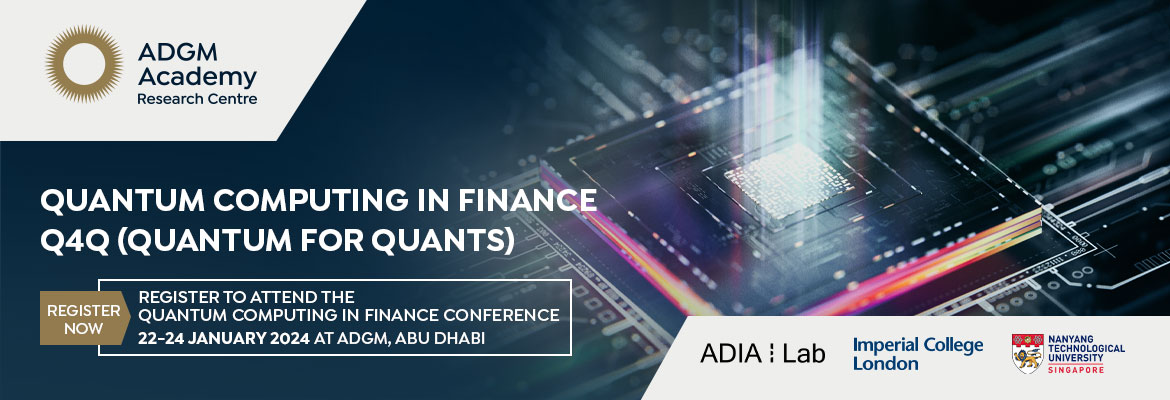
Event Agenda: 23 January 2024 – Day 2
| Time | Agenda |
|---|---|
| 08:30 - 09:00 |
Registration |
| 09:00 - 09:05 |
Welcome address Speaker: 
Rauda Al DhaheriManager of Research & Development | ADGM Academy Research Centre "Rauda Al Dhaheri is a distinguished professional who is currently serving as the Manager of Research & Development at ADGM Academy. With over 5 years of experience at ADGM Academy, she has exhibited exceptional dedication and expertise in the financial sector. In her current role as Manager of Research & Development, Rauda has been instrumental in connecting academia with the financial sector, fostering problem-solving and fostering new insights through applied research. She directs her focus towards key domains of significance, including Artificial Intelligence, Digital Transformation, FinTech, Cyber Security, and Big Data Analytics. Notably, Rauda has effectively managed and executed National Development Programmes launched by ADGM Academy under the Ghadan 21 initiative. Her leadership has significantly propelled the National Employability Programmes, positioning them as a flagship solution for Emiratization. She is deeply committed to empowering young Emirati talent by ensuring sustainable employment opportunities. Rauda Al Dhaheri is an alumna of Abu Dhabi University, where she obtained her master’s degree in business administration. She also holds a bachelor’s degree from United Arab Emirates University, demonstrating her commitment to education and continuous growth. With her exemplary leadership and dedication to the development of both individuals and the financial sector." |
| 09:05 - 09:10 |
Day 1 Wrap-up Speaker: 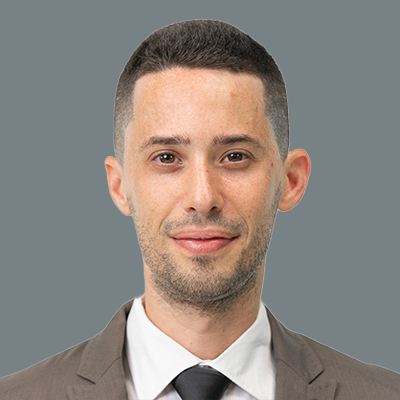
Ariel NeufeldAssociate Professor | Nanyang Technological University Ariel Neufeld is a Nanyang Assistant Professor in mathematics at the Nanyang Technological University in Singapore. He received his PhD in mathematics in May 2015 at ETH Zurich, where he spent half of his PhD at the Columbia University in the City of New York. Prior to joining NTU he was a postdoctoral researcher at ETH Zurich. His research focuses on machine learning & quantum algorithms and their applications in finance and insurance, model uncertainty in financial markets and distributionally robust optimization, as well as stochastic analysis and stochastic optimal control. |
| 09:10 - 09:50 |
FinTech - Hybrid Quantum Applications In today's informative session, IonQ will showcase an application of Generative Learning for analyzing correlation structures in financial data using quantum copulas. Copulas are mathematical tools for modeling joint probability distributions. The fact that copulas can be expressed as maximally entangled quantum states has revealed a promising approach to practical quantum advantages. You'll also hear about other financial applications that your competitors are exploring. IonQ is expanding globally to meet the growing interest in quantum applications, so it will be our pleasure to share the latest technical advances in IonQ's trapped-ion quantum computers and the commercially focused applications that are compelling our clients to begin their quantum journeys with IonQ. Speaker: 
Lamont SilvesHead of Government Solutions | IonQ Mr. Silves leads IonQ’s efforts to partner with government agencies and research institutions. He has held executive and advisory roles at quantum technology companies that include D-Wave Systems and Infleqtion since 2016. From 2012 to 2016 he was based in the Middle East with offices in Dubai and Washington, DC. Mr. Silves led P&L and sales efforts at Computer Sciences Corporation, CACI and Vangent (now General Dynamics Information Technology). Earlier in his career, he helped found a global private equity firm based in Boston and worked to commercialize advanced defense technologies. Mr. Silves holds a master’s degree in information systems from George Washington University and a bachelor’s degree from American University, both in Washington, DC. He resides in Florida and, oddly given his residence, has a passion for snow skiing. 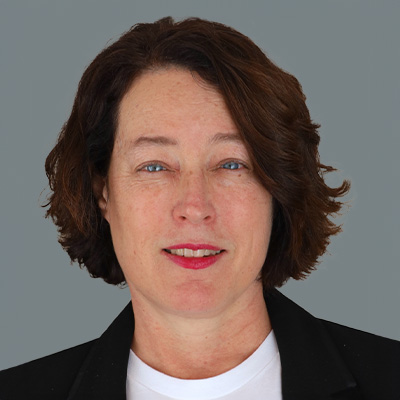
Nicole BarberisDirector Quantum Business Solutions | IonQ Nicole is the Director of Quantum Business Solutions. She and her global team focus on collaborating with clients on their journey to implementing quantum computing applications. She has been actively participating in the quantum computing field for more than 10 years and brings a strong technical background in classical and quantum machine learning that she uses to help clients choose the right quantum applications to remain competitvely relevant. IonQ collaborates with your domain experts (SMEs) to create a quantum journey that meets your business needs. With an MS in Applied Statistics, Nicole spent over a decade working as a data scientist. Prior to IonQ, she worked on the IBM Quantum team as a quantum machine learning developer. Reach out to her with your questions. It’s an exciting time for quantum computing! |
| 09:50 - 10:30 |
Towards large-scale quantum combinatorial optimization solvers with few qubits Combinatorial optimizations are a major promise of quantum computation, but practical applicability before fault-tolerant devices appear is unclear. I present two methods that drastically reduce the experimental requirements for near-term quantum solvers. In the first part, I discuss a quantum-classical solver for binary optimizations of size m polynomially larger than the number of qubits n used. This features several technical advantages that lead to unprecedented performances. For instance, for m=2000 vertices, an experiment with n=17 trapped-ion qubits featured MaxCut approximation ratios beyond the hardness threshold 0.941. To our knowledge, this is the highest quality attained experimentally on such sizes. More generally, constrained optimizations require first reducing them to Quadratic Unconstraint Binary Optimizations (QUBOs). However, finding ‘good' QUBO reformulations can be hard. In the second part, I thus present an efficient classical algorithm for QUBO reformulations with significant advantages in terms of Hamiltonian spectral properties. For portfolio optimization, the quantum runtime using the novel reformulation is orders of magnitude smaller than with existing approaches. Our findings offer novel heuristics for quantum-inspired solvers as well as a promising route towards solving commercially-relevant problems on near term quantum devices. Speaker: 
Leandro AolitaExecutive Director, Quantum Algorithms Division at the Quantum Research Center | Technology Innovation Institute Prof. Aolita is Executive Director of the Quantum Algorithms division at the Quantum Research Center in the Technology Innovation Institute, Abu Dhabi. Prior to joining the Institute, he was a tenured Associate Professor of Physics at the Federal University of Rio de Janeiro, where he led a group on Quantum Information Theory and was a grantee of the highly competitive Serrapilheira Institute. Before that, in Europe, he has been a Marie Curie Fellow at the Free University of Berlin and a Juan de la Cierva Fellow at the Institute of Photonic Sciences in Barcelona. His interests are quantum information and computation theory, with current focus on quantum algorithms. |
| 10:30 - 11:00 |
Coffee Break |
| 11:00 - 11:30 |
Quantum feature maps - aspects of theory and hardware implementation
Speaker: 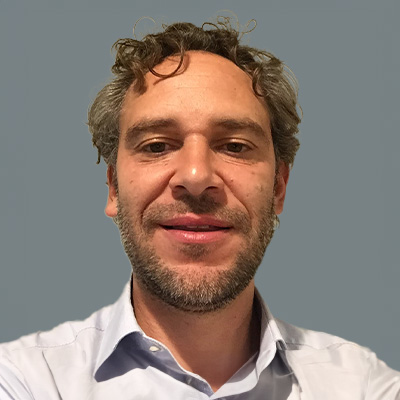
Marco PainiVP Finance Solutions | Rigetti Computing Marco Paini is VP Finance Solutions at Rigetti Computing and focuses on the growth of Rigetti’s financial services practice, including the continued development of proprietary solutions, of an expert team, and of impactful partnerships with finance institutions. Marco has recently been managing the programme to build the first commercial quantum computer in the UK, a collaboration led by Rigetti and sponsored by Innovate UK with Oxford Instruments, Phasecraft, the University of Edinburgh and Standard Chartered. Marco previously led quantum computing applications portfolio development of QxBranch, a quantum computing software company acquired by Rigetti in 2019. Prior to QxBranch, Marco spent more than eighteen years with Accenture, where he held several roles in technology. In the last part of his career with Accenture, Marco oversaw the AI ecosystem and the development of the quantum computing offering for the Accenture UKI Financial Services Technology Advisory practice. Marco studied physics at the University of Pavia, where he collaborated with the Quantum Information Theory Group of the University of Pavia. |
| 11:30 - 12:00 |
Quantum computing for probability distributions classification
Speaker: 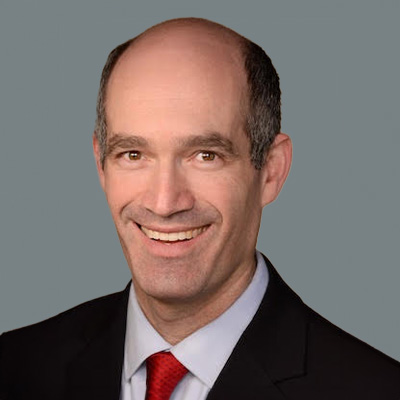
David GarvinHead of Applications, Quantum Finance | Rigetti Computing David Garvin is Head of Applications, Quantum Finance at Rigetti Computing. David focuses on researching, developing and implementing financial industry applications of quantum computing. Previously he worked in the Quantum Computing Office at NEC and at QxBranch, a quantum applications company acquired by Rigetti in 2019. David has over 20 years experience as a Front-Office Quant in the Finance Industry. Previously, he served as the Global Head of Quantitative Analysis at the Commonwealth Bank of Australia. Prior to that, he was a Director at Deutsche Bank and a Quant Analyst at Morgan Grenfell. He has covered all asset classes and been involved in management, modeling, risk and analytics, derivatives and structured products, machine learning and electronic trading. David holds a PhD in Artificial Intelligence from Cambridge University and an MBA (Exec) from the Australian Graduate School of Management. He has authored articles in finance, physics, engineering, classical computing and quantum computing. |
| 12:00 - 12:30 |
Saving resources with Quantum Agents Agents often execute complex strategies - continually adapting their reactions to input stimuli to synergize with past actions. As society pushes to automate ever more complex tasks, the computational resource requirements of such agents are growing in tandem – contributing to chip shortages, and a growing energy footprint of such technologies. Indeed, with the rapid advances in large language models, the memory resources costs required by such technologies has been doubling every 3-4 months and energetic costs are growing in tandem. In this talk we determine the fundamental limits on the amount of memory and energy required for executing a complex strategy classically. We demonstrate that a quantum agent can use less memory and lower energetic cost to execute such tasks, implying that it is more efficient to make decisions quantum mechanically. Speaker: 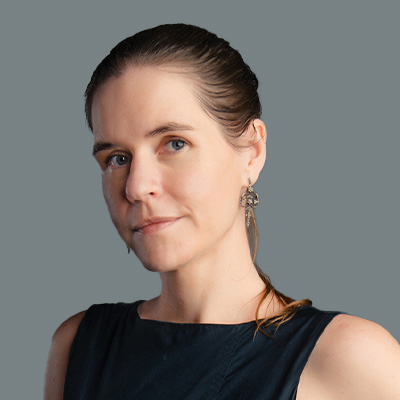
Jayne ThompsonGroup Manager for Quantum Algorithms and Physics | Institute of High Performance Computing Jayne is the group manager for quantum algorithms and physics at the Institute of High Performance Computing in Singapore. She has previously worked in the quantum tech industry as a principal scientist for the quantum software company, Horizon Quantum Computing, as well as having completing a research fellowship at the Centre for Quantum Technologies in Singapore. Jayne also holds a PhD in theoretical physics from the University of Melbourne (circa 2012). She has worked extensively in the field of quantum information, and quantum computing both on developing new protocols as well as the design of quantum programming languages and their software implementation. |
| 12:30 - 13:30 |
Lunch |
| 13:30 - 14:00 |
Time-series forecasting with quantum-enhanced signature kernels
Speaker: 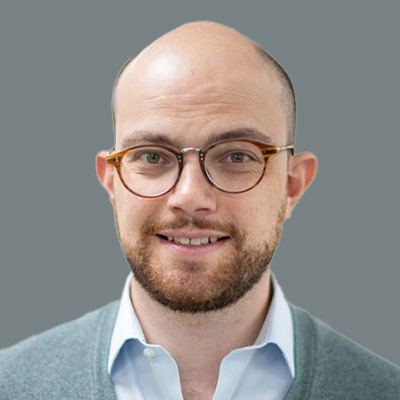
Mattia FiorentiniDirector of Quantum Applications | Rigetti Computing Dr. Mattia Fiorentini is the Director of Quantum Applications at Rigetti Computing where he focuses on developing quantum and classical machine-learning solutions for quantitative finance, working with academic partners as well as industry leaders. He is broadly involved in the overall effort of delivering a practical quantum advantage on problems of applied interests and embedding quantum computation in high-performance computing workflows. He matured an almost decade-long experience in developing quantum algorithms for industry problems and implementing them in production-grade software at several quantum computing companies. He has a significant academic track record in quantum physics and condensed matter. |
| 14:00 - 14:30 |
Quantum-enhanced stochastic modelling and its potential implications for finance Stochastic modelling and simulation are critical components of time-series analysis. They provide systematic means for us to make inferences about future occurrences and their potential likelihoods based on data available in the present and simultaneously help us isolate what elements of the past are most pertinent for predicting future behaviour. Yet, as the process we wish to model becomes ever more non-Markovian, and the futures we want to infer are ever more rare, the memory and time resources needed by traditional techniques can grow in tandem. In this presentation, I outline the potential for quantum models to mitigate such resource requirements. I will introduce quantum stochastic models, illustrating their potential to (i) generate equally accurate future predictions while tracking less data from the past and (ii) generate such predictions in quantum superposition. I then outline how these ideas can be combined for enhanced quantum stochastic analysis - allowing potential for quadratic speed-up in estimating the likelihood of rare events and quantum-enhanced dimensional reduction with reduced model distortion. Speaker: 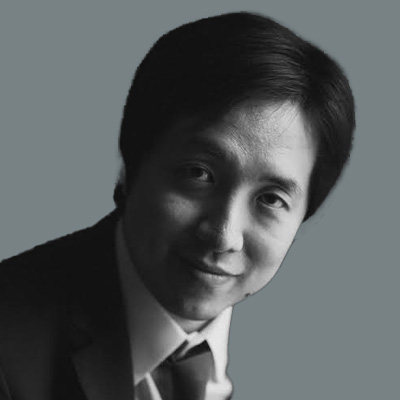
Mile GuAssociate Professor | Nanyang Technological University Gu is a New Zealand physicist, who obtained his Ph.D. at the University of Queensland in 2009. In 2012, he joined the Institute for Interdisciplinary Information science at Tsinghua University. In 2016, Gu was named a National Research Foundation Fellow by the Government of Singapore, and is presently Associate Professor at Nanyang Technological University. There, he leads the quantum and complexity science initiative – focusing on topics bridging quantum, complexity and information science. Gu is also a CQT Fellow at the National University of Singapore and a principal investigator in the Singapore-France joint institute, Majulab. Gu’s accolades include the China 100 Talent, IBM Quantum Pitch Contest Winner, Fellow of the Foundational Questions Institute. |
| 14:30 - 15:00 |
Randomized semi-quantum matrix processing Quantum computers have the potential to speed up important matrix-arithmetic tasks. A prominent framework for that is the quantum singular-value transformation (QSVT) formalism, which uses Chebyshev approximations and coherent access to the input matrix via a unitary block encoding to design a target matrix function. Nonetheless, physical implementations for useful end-user applications require large-scale fault-tolerant quantum computers. Here, we present a hybrid quantum-classical framework for Monte-Carlo simulation of generic matrix functions more amenable to early fault-tolerant quantum hardware. We apply our technique to four specific use cases: partition-function estimation via quantum Markov-chain Monte Carlo and via imaginary-time evolution; end-to-end linear system solvers; and ground-state energy estimation. For these cases, we prove advantages on average circuit depths. Speaker: 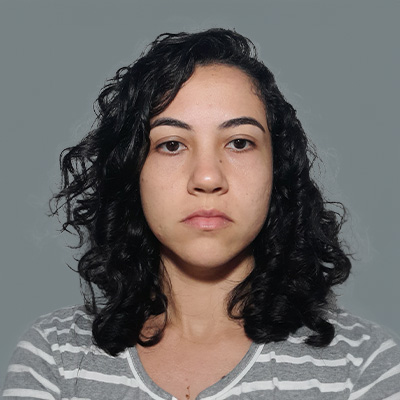
Thais de Lima SilvaPostdoctoral Researcher | Technology Innovation Institute Dr Thais Silva holds a BSc and an MSc in Physics from the Federal University of Goiás, Brazil, obtained in 2014 and 2016, respectively. In 2020, she got a Ph.D. in experimental Quantum Optics from the Federal University of Rio de Janeiro, Brazil, where she also started working with quantum algorithms, spending two years as a postdoctoral researcher. She joined TII in 2022. Her focus is on quantum algorithms for near-term quantum devices. |
| 15:00 - 15:30 |
Coffee Break |
| 15:30 - 16:00 |
Design Space Exploration and Applications of Quantum Machine Learning Quantum Computing (QC) claims to improve the efficiency of solving complex problems, compared to classical computing. When QC is applied to Machine Learning (ML) applications, it forms a Quantum Machine Learning (QML) system. After discussing the basic concepts of QC and its advantages over classical computing, this talk presents the key aspects of QML in a comprehensive manner, followed by an overview of different QML algorithms and their domain applicability, quantum datasets, hardware technologies, software tools, simulators, and applications such as finance, cryptography, and sensing. Afterward, this talk presents an analysis and exploration of the design space of hybrid Quantum Neural Networks by investigating different architectural permutations and quantum hyperparameters. Speaker: 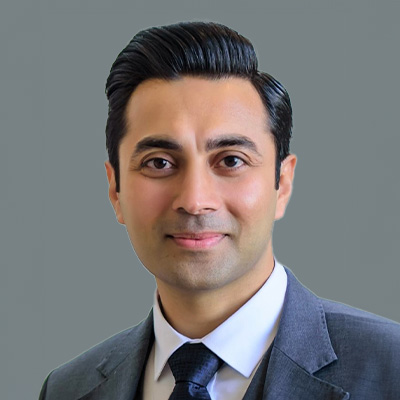
Muhammad ShafiqueProfessor of Electrical and Computer Engineering, Director eBRAIN Lab | NYU Abu Dhabi Muhammad Shafique (M’11 - SM’16) received his Ph.D. degree in Computer Science from the Karlsruhe Institute of Technology (KIT), Germany, in 2011. Afterwards, he established and led a highly recognized research group at KIT for several years as well as conducted impactful collaborative R&D activities across the globe. Besides co-founding a technology startup in Pakistan, he was also an initiator and team lead of an ICT R&D project. He has also established strong research ties with multiple universities in worldwide, where he has been actively co-supervising various R&D activities and student/research Theses since 2011, resulting in top-quality research outcome and scientific publications. Before KIT, he was with Streaming Networks Pvt. Ltd. where he was involved in research and development of video coding systems several years. In Oct.2016, he joined the Institute of Computer Engineering at the Faculty of Informatics, Technische Universität Wien (TU Wien), Vienna, Austria as a Full Professor of Computer Architecture and Robust, Energy-Efficient Technologies. Since Sep.2020, Dr. Shafique is with the New York University (NYU), where he is currently a Full Professor and the director of eBrain Lab at the NYU-Abu Dhabi in UAE, and a Global Network Professor at the Tandon School of Engineering, NYU-New York City in USA. He is also a Co-PI/Investigator in multiple NYUAD Centers, including Center of Artificial Intelligence and Robotics (CAIR), Center of Cyber Security (CCS), Center for InTeractIng urban nEtworkS (CITIES), and Center for Quantum and Topological Systems (CQTS). Dr. Shafique has demonstrated success in obtaining prestigious grants, leading team-projects, meeting deadlines for demonstrations, motivating team members to peak performance levels, and completion of independent challenging tasks. His experience is corroborated by strong technical knowledge and an educational record (throughout Gold Medalist). He also possesses an in-depth understanding of various video coding standards and machine learning algorithms. His research interests are in AI & machine learning hardware and system-level design, brain-inspired computing, neuromorphic computing, approximate computing, quantum machine learning, cognitive autonomous systems, robotics, wearable healthcare, AI for healthcare, energy-efficient systems, robust computing, machine learning secrity and privacy, hardware security, emerging technologies, electronic design automation, FPGAs, MPSoCs, embedded systems, and quantum computing. His research has a special focus on cross-layer analysis, modeling, design, and optimization of computing and memory systems. The researched technologies and tools are deployed in application use cases from Internet-of-Things (IoT), Smart Cyber-Physical Systems (CPS), and ICT for Development (ICT4D) domains. Dr. Shafique has given several Keynotes, Invited Talks, and Tutorials at premier venues. He has also organized many special sessions at flagship conferences (like DAC, ICCAD, DATE, IOLTS, and ESWeek). He has served as the Associate Editor and Guest Editor of prestigious journals like IEEE Transactions on Computer Aided Design (TCAD), IEEE Design and Test Magazine (D&T), ACM Transactions on Embedded Computing (TECS), IEEE Transactions on Sustainable Computing (T-SUSC), and Elsevier MICPRO. He has served as the TPC Chair of several conferences like CODES+ISSS, IGSC, ISVLSI, PARMA-DITAM, RTML, ESTIMedia and LPDC; General Chair of ISVLSI, IGSC, DDECS and ESTIMedia; Track Chair at DAC, ICCAD, DATE, IOLTS, DSD and FDL; and PhD Forum Chair of ISVLSI. He has also served on the program committees of numerous prestigious IEEE/ACM conferences including ICCAD, DAC, MICRO, ISCA, DATE, CASES, ASPDAC, and FPL. He has been recognized as a member of the ACM TODAES Distinguished Review Board in 2022. He is a senior member of the IEEE and IEEE Signal Processing Society (SPS), and a professional member of the ACM, SIGARCH, SIGDA, SIGBED, and HIPEAC. He holds one US patent and has (co-)authored 7 Books, 20+ Book Chapters, 350+ papers in premier journals and conferences, and over 100 archive articles. Dr. Shafique received the prestigious 2015 ACM/SIGDA Outstanding New Faculty Award, the AI-2000 Chip Technology Most Influential Scholar Award in 2020, 2022 and 2023, the ATRC’s ASPIRE Award for Research Excellence in 2021, six gold medals in his educational career, and several best paper awards and nominations at prestigious conferences like CODES+ISSS, DATE, DAC, ISLPED, and ICCAD, Best Master Thesis Award, DAC'14 Designer Track Best Poster Award, IEEE Transactions of Computer "Feature Paper of the Month" Awards, and Best Lecturer Award. His research work on aging optimization for GPUs featured as a Research Highlight in the Nature Electronics, Feb.2018 issue. Dr. Shafique was named in the NYU’s 2021 Faculty Honors List. His students have also secured many prestigious student and research awards in the research community. |
| 16:00 - 16:30 |
Hybrid quantum-classical reservoir computing for solving chaotic systems Inspired by the reservoir computing classical paradigm of machine learning, and its ability to exploit non-linear dynamics to learn linear mapping of such dynamics to complex functions, we look at opportunity to explore the dynamics of quantum systems, as represented by sequential runs of quantum circuits specified via measurement results, for short term forecasting of time-series (nowcasting). We observe that even few noisy qubits on superconducting processors and simple entangling circuits could provide the richness of dynamics required for nowcasting chaotic system benchmarks. This work could pave the way to more complex applications in precipitation forecasting. Speaker: 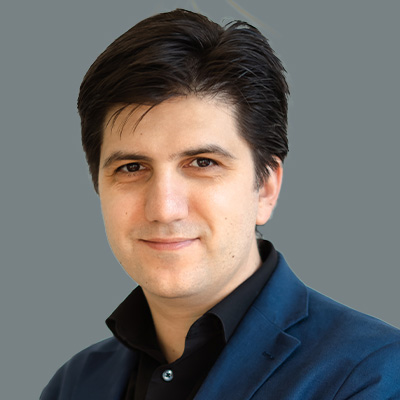
Davide VenturelliFellow / Senior Research Scientist | USRA and NASA Ames Dr. Davide Venturelli has worked since 2012 in the NASA Quantum AI Laboratory (QuAIL) under the NASA Academic Mission Service, invested in research projects dealing with quantum optimization applications and their implementation in a hardware-software co-design approach. He has authored more than 50 publications and 9 patents on the subject of AI, Theoretical Physics, Quantum Computing, and Robotics. He teaches Quantum Integer Programming as an adjunct professor at Carnegie Mellon University Tepper's School of Business. He has experience winning, managing, and leading multi-million dollar R&D projects as Principal Investigator or co-PI, sponsored by DARPA, NSF, and DOE. He is the co-lead of the Ecosystem task of the National Quantum Initiative Superconducting Quantum Materials and System (SQMS) Center at Fermi National Laboratory. In 2021 he was elected member of the Quantum Economic Development Consortium (QED-C) steering committee, the organism coordinating 100+ companies involved in building the supply chain for the emergent quantum technology industry. |
